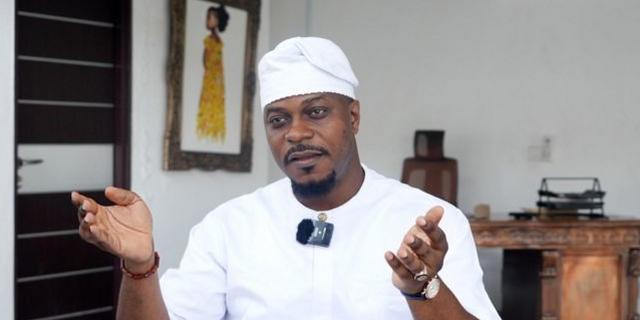Gbadebo Rhodes-Vivour, the Labour Party’s gubernatorial candidate in Lagos State during the 2023 elections, has emphasized the critical need for a robust opposition in Nigeria to effectively challenge the ruling All Progressives Congress (APC). He articulated this viewpoint during an appearance on Channels Television’s Politics Today program, asserting that a dynamic opposition is essential for holding the government accountable and ensuring a healthy democracy. Rhodes-Vivour’s comments come amidst internal disagreements within the Labour Party, which he characterized as “sibling rivalry,” emphasizing their civil nature and distinguishing them from destructive internal conflicts.
Rhodes-Vivour drew a parallel between the current state of the opposition and the more assertive stance taken by the Senate during Bukola Saraki’s tenure as Senate President. While acknowledging Saraki’s imperfections, he lauded the Senate’s proactive role in holding the government accountable, a characteristic he believes is lacking in the current National Assembly. This perceived absence of a strong opposition, according to Rhodes-Vivour, is concerning and contributes to a sense of unchecked power within the ruling party. He expressed disappointment with opposition lawmakers in the National Assembly, contrasting their performance with the Bukola Saraki-led Senate, which he viewed as more effective in its oversight function. This perceived weakness in the opposition, Rhodes-Vivour suggests, allows the ruling party to operate with less scrutiny.
The Labour Party’s internal disputes, while acknowledged, were downplayed by Rhodes-Vivour as internal family disagreements. He contrasted the Labour Party’s situation with more destructive intra-party conflicts, highlighting the absence of violence and emphasizing the ongoing legal processes being utilized to resolve disputes. This characterization of internal dissent as “sibling rivalry” suggests that the disagreements are manageable and do not pose an existential threat to the party’s future. Furthermore, it subtly underscores his belief in the party’s potential to remain a viable force in Nigerian politics.
Rhodes-Vivour also commended Peter Obi, the Labour Party’s presidential candidate in the 2023 elections, for his continued engagement in public discourse and his commitment to holding the government accountable. He highlighted Obi’s consistent public presence and his vocal criticisms of government policies, framing these actions as essential contributions to a healthy democratic process. This praise for Obi reinforces Rhodes-Vivour’s broader argument about the importance of a vigilant opposition and suggests that Obi serves as a model for other opposition figures.
Looking towards the 2027 elections, Rhodes-Vivour expressed his intention to run for governor again, albeit without confirming his party affiliation. He underscored the importance of opposition parties uniting to effectively challenge the ruling party. This call for unity reflects a recognition of the challenges posed by a fragmented opposition and suggests a strategic approach for the future. Rhodes-Vivour’s emphasis on a unified opposition underscores the perceived imbalance of power between the ruling party and the fragmented opposition.
Furthermore, he stressed the necessity for a strong Labour Party, highlighting his commitment to building and strengthening the party’s infrastructure. He cautioned against participating in the 2027 elections if opposition parties remain divided, suggesting that a united front is essential to challenge what he perceives as the increasing dominance of the APC. This assertion emphasizes his belief in the importance of a strong and unified opposition to counterbalance the ruling party’s influence. He also expressed his intent to run for governor again in 2027, emphasizing the need for opposition parties to unite and present a stronger front against the ruling APC. This highlights his strategic vision for the future of Nigerian politics and underscores the importance of collaboration among opposition parties. He also expressed his intention to run for governor again in 2027, suggesting a long-term commitment to political engagement and a belief in his potential to effect change. However, he stopped short of confirming whether he would run under the Labour Party banner, leaving open the possibility of exploring other political alliances.
Rhodes-Vivour’s statements reflect a broader concern about the state of Nigerian democracy, particularly the need for a robust opposition to hold the government accountable. His emphasis on a unified opposition suggests a strategic approach to future elections, recognizing the challenges posed by a fragmented political landscape. His commitment to strengthening the Labour Party, coupled with his intention to run for governor again, indicates a continued dedication to political engagement and a belief in the possibility of positive change. The call for a unified opposition, the praise for Peter Obi’s continued activism, and the concern about the National Assembly’s perceived lack of assertiveness all contribute to a narrative that emphasizes the importance of a vibrant and effective opposition in a functioning democracy.














